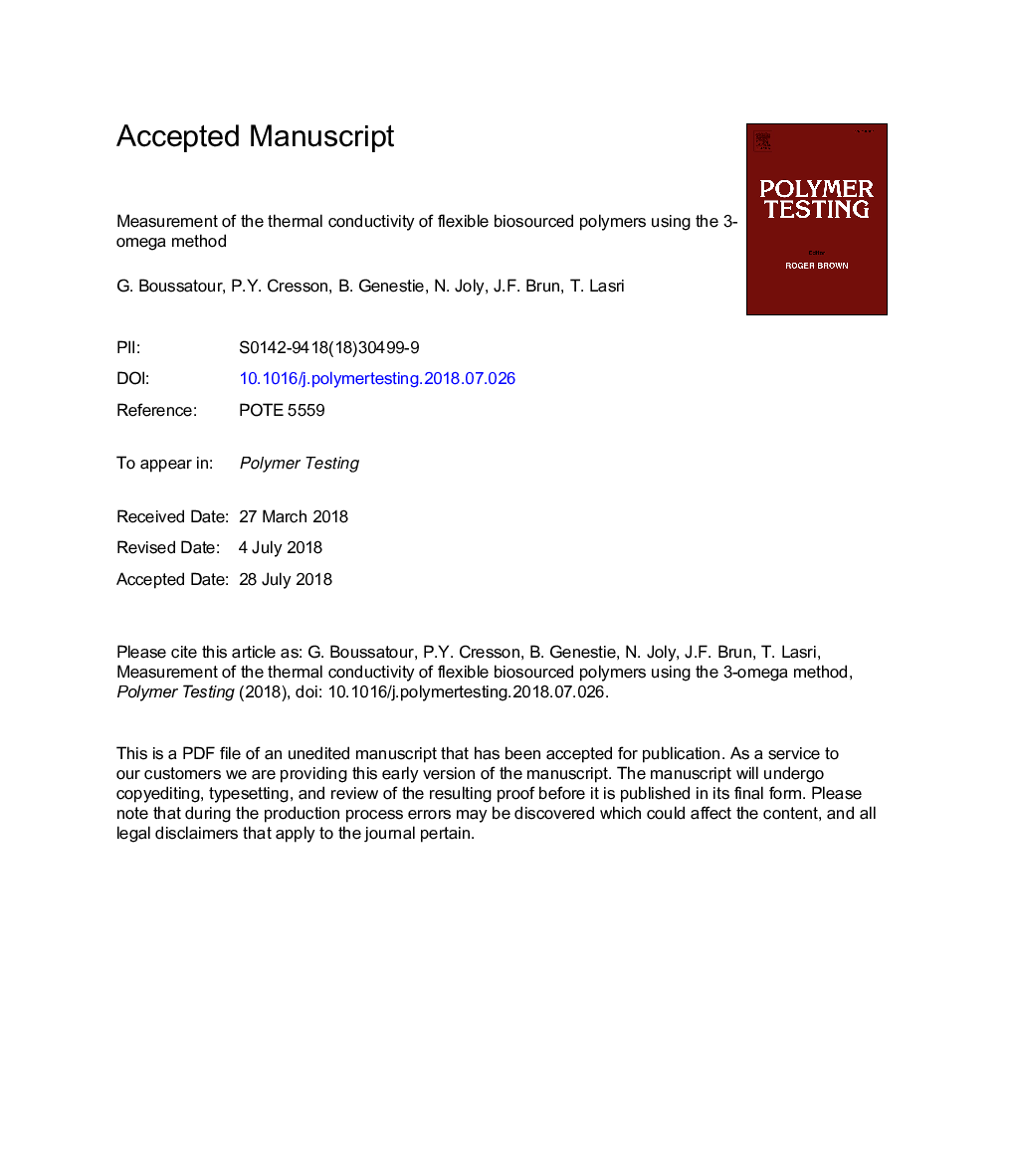| Article ID | Journal | Published Year | Pages | File Type |
|---|---|---|---|---|
| 7824552 | Polymer Testing | 2018 | 12 Pages |
Abstract
The thermal conductivity of flexible biosourced polymers was measured by the 3-omega method. Two biopolymers were investigated: the polylactic acid (PLA), a widely used commercial biodegradable one, and the cellulose palmitate (CP), a hydrophobic biosourced material developed in the laboratory, that could be used in electronic or microfluidic applications. The 3-omega method is based-on the use of a metal element as both heating device to thermally disturb the system and temperature sensor. A stencil lithography technique was applied to obtain metallic lines, since biopolymers are not compatible with classical photolithography method. Thermal conductivities of 0.19 and 0.30â¯W/m.K are obtained respectively for PLA and CP thick films, and 0.12 and 0.22â¯W/m.K for respectively PLA and CP thin films. These values are close to those measured for petro-sourced substrates or films and so give the possibility to address the applications mentioned.
Keywords
Related Topics
Physical Sciences and Engineering
Chemistry
Organic Chemistry
Authors
G. Boussatour, P.Y. Cresson, B. Genestie, N. Joly, J.F. Brun, T. Lasri,
